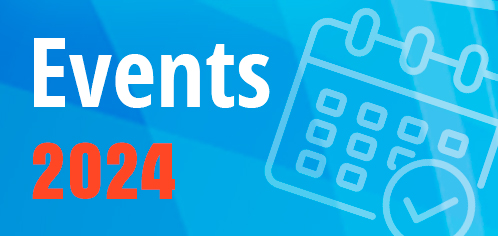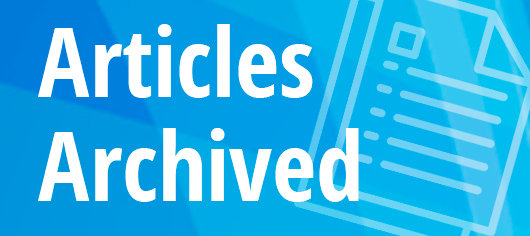US employs unusual intel strategy to counter Putin
The White House has aggressively worked to rebut false narratives emanating from Russia about the crisis in Ukraine by proactively releasing intelligence information, a highly unusual strategy that experts and former officials say has knocked Russian President Vladimir Putin off his game.

The tactic didn’t prevent Russia from invading Ukraine, but experts credit it with scrambling and defanging some of the Russian plots to create a false justification for an invasion, as well as preparing the world to react quickly.
“It didn’t deter them, but it disrupted what they were doing and I think short circuited some of their plans,” said Clinton Watts, a fellow at the Foreign Policy Research Institute.
President Biden credited this strategy in a speech from the White House on Thursday, making clear on the world stage that “Putin is the aggressor. Putin chose this war.”
“We have been transparent with the world — we shared declassified intelligence about Russia’s plans and cyber attacks and false pretexts — so that there can be no confusion or cover up,” he said.
Vladimír Bilčík, head of the European Parliament’s Committee on Foreign Interference, told The Hill that the blunt and dire warnings from the U.S. took away Putin’s ability to benefit from the element of surprise.
“This transparency, this quick exposure and this intelligence sharing has been extremely useful because I think it has pointed to a number of weak points in Russia’s strategy. There has been little element of surprise in terms of what’s to come,” he said.
The decision by the U.S. to proactively share intelligence widely and publicly to rebut Russian narratives represented a shift and desire on the part of the administration to take a bolder approach than Obama administration officials in 2014, when Russia invaded Ukraine’s Crimean Peninsula.
“We were hampered by our cautiousness regarding our sharing of intelligence,” said Evelyn Farkas, who served as Deputy Assistant Secretary of Defense for Russia, Ukraine, and Eurasia under the Obama administration at the time of the 2014 invasion.
Still, the worst-case scenario came to pass on Wednesday night, when Russia launched a full-scale invasion of Ukraine, carrying out attack plans earlier published by the U.K. Foreign Ministry of Defense that showed an extraordinary map with Putin’s “possible axis of invasion,” a phase one invasion from seven areas including Belarus, Russia and occupied-Crimea.
“For weeks, for weeks, we have been warning that this would happen. And now it's unfolding largely as we predicted,” Biden said on Thursday.
U.S. officials and experts say that while the publication of Putin’s plans has failed to deter him, it has served to unite allies and partners to react in quick coordination and has primed domestic audiences to support imposing consequences.
This includes unity among the 27-nation bloc of the European Union, which convened two meetings in quick succession to discuss and vote on sanctions packages against Russia and Putin personally for invading Ukraine, and Moscow’s recognition as independent territories in Ukraine’s Donbas region.
Germany also moved quickly to suspend a Russia-to-Germany natural gas pipeline, Nord Stream 2, a serious point of contention between Berlin and Washington and other countries in Europe.
“I’m glad that Germany finally came around and, clearly stating, Nord Stream 2 is off the table,” Bilčík, who is from Slovakia and is a member of the Group of the European People's Party (Christian Democrats). “This is a project that cannot have a future at all.”
A recent Washington Post-ABC News poll found 67 percent of U.S. adults support sanctions on Russia, though Biden received negative marks overall for the way he has handled the crisis.
“The right control of the narrative is important for setting the background against which governments will make decisions,” said Daniel Fried, who served as U.S. ambassador to Poland and is a distinguished fellow with the Atlantic Council. “So, high marks to the Biden people, they’re all in. This is crisis mode, all the senior officials are all in on this. I don’t think Putin expected that.”
While the U.S. and its allies have been proactive in calling out Putin’s falsehoods against Ukraine on the world stage, the Russian leader has focused on his domestic audience, airing grievances against the West to convince the Russian people of a need to invade Ukraine.
Putin’s control of Russian media hampers the ability of the U.S. and other countries to break through to Russian audiences, and the Kremlin has sought to further restrict outside information from breaking through.
Russian officials on Friday took moves to restrict Facebook, in an action the social media company said was retaliation for countering disinformation and as a tool for activists to organize protests.
“Ordinary Russians are using [Meta Platform Incs.] apps to express themselves and organize for action. We want them to continue to make their voices heard, share what’s happening, and organize through Facebook, Instagram, WhatsApp and Messenger,” Nick Clegg, Meta’s vice president of Global Affairs wrote on Twitter.
Countering Russian information operations, both covert and overt, will continue to challenge the Biden administration as it seeks to maintain unity among allies, partners and the global community in support of Ukraine.
Watts predicted that Russia would look to find sympathetic audiences in European countries, like supporters of far-right politicians in France and the U.K.
“I think the first wave of disinformation is done already and we’re looking to see where they pivot next,” he said.










